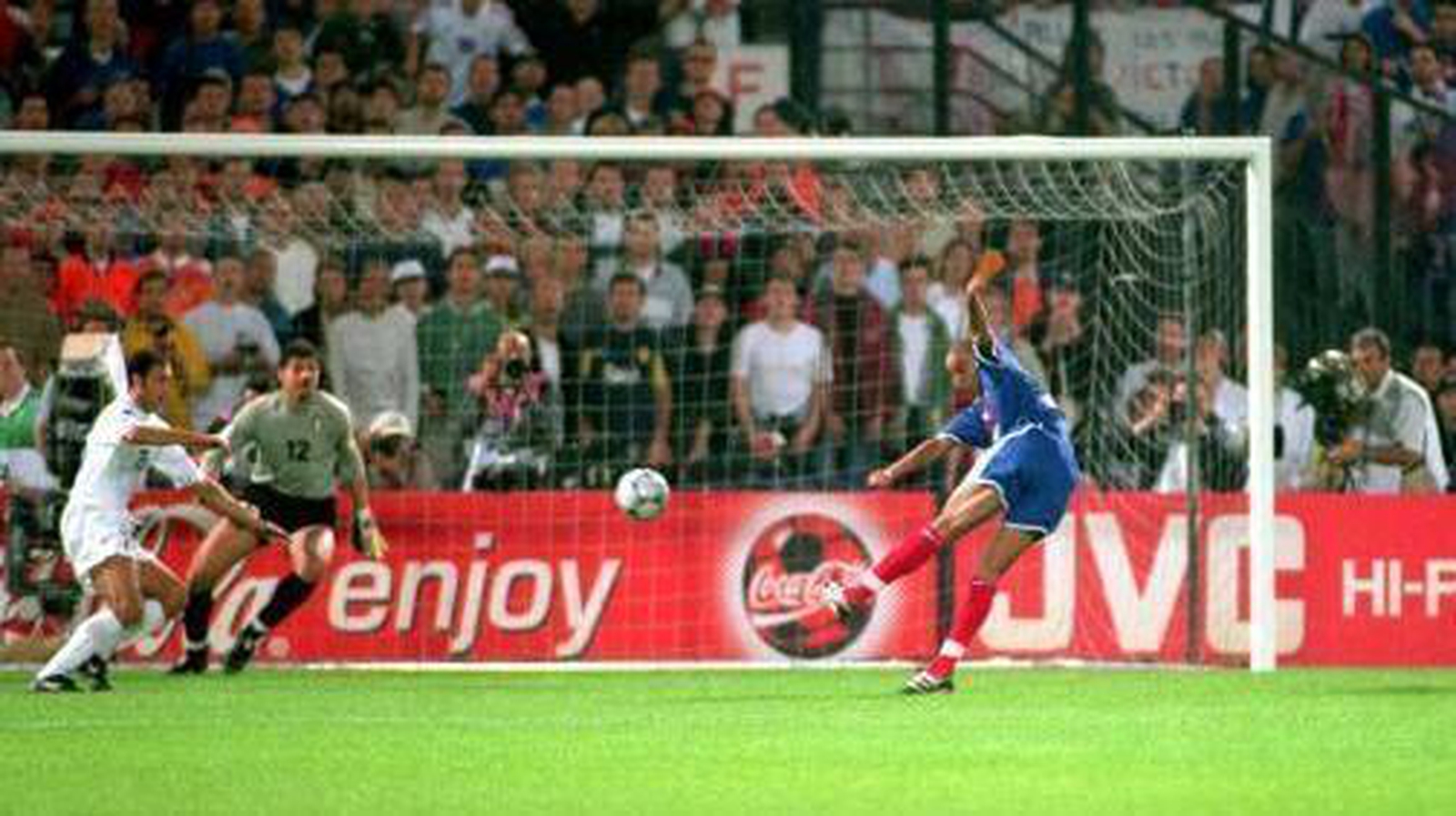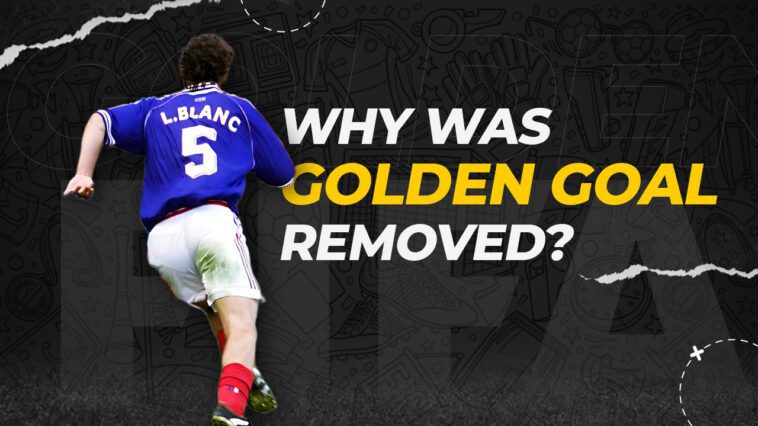Football has undergone several rule changes and innovations over the years. One significant modification in the late 20th century was the introduction of the “Golden Goal.”
This rule aimed to add excitement and unpredictability to the game, but it was eventually removed. In this article, we will explore why the Golden Goal was introduced and, more importantly, why it was eventually removed.
Why was Golden Goal Introduced?
The Golden Goal rule was introduced in 1993 by the people in charge of the laws of the game, the International Football Association Board (IFAB). They decided to call it “Golden Goal” instead of “Sudden Death” because the latter sounded too negative.
The rule was meant to get rid of penalty shootouts in knockout-stage matches during big tournaments like the World Cup and the European Championship. Under the Golden Goal rule, the first team to score in extra time would immediately win the match.
The idea was to create thrilling and unexpected moments of victory. It was also supposed to stop teams from playing too defensively in extra time, as they often did before, waiting to go to penalties.
But the Golden Goal actually had the opposite effect. Instead of attacking to score the winning goal, teams would sit back and defend, making sure they didn’t concede rather than trying to win it.
Even though teams didn’t have to use the Golden Goal rule, FIFA decided to try it out in some lower-level and youth competitions. The first Golden Goal was scored by Australian player Anthony Carbone in a 1993 World Youth Cup quarter-final match against Uruguay.
The first European Championship to use the Golden Goal was in 1996, where Germany won the final against the Czech Republic with a Golden Goal. The first World Cup with the rule was in 1998.
Why Was the Golden Goal Removed?
Several factors contributed to the removal of the Golden Goal rule from football:
1. Lack of Fairness: Many people thought the Golden Goal was a bad way to decide important matches. It often came down to a single mistake or lucky bounce. The team that scored first had a big advantage, and the other team had to play really carefully and defensively.
2. Tension and Nervousness: The Golden Goal scenarios made players and fans really anxious. While that can be exciting, it also led to teams playing too defensively, which was boring for the fans.
3. Potential for Anti-climactic Moments: The rule had the potential to create really anti-climactic moments in important matches. When the game ended with a lucky, bouncing goal or a mistake, it was disappointing for everyone.
4. Harshness: The Golden Goal was a really rough way to settle matches. It often meant a sudden and unsatisfying end for the losing team. Fans especially didn’t like it when it was used in penalty shootouts, which they thought was a fairer and more skill-based way to decide a winner.
The Silver Goal Rule
Looking at the complaints about the Golden Goal rule, UEFA decided to try something new. In the 2002-03 season, they introduced the Silver Goal rule.
Under the Silver Goal, if a team was winning after the first 15 minutes of extra time, they would be declared the winner. But the game wouldn’t end the moment a team scored. The full 30 minutes of extra time would still be played.
Competitions that used extra time could choose to use the Golden Goal, the Silver Goal, or neither. Both rules had some fans, but most people saw them as failed experiments that didn’t work very well.

In 2004, the IFAB, the organization that makes the rules of football, officially got rid of both the Golden Goal and Silver Goal.
The decision was largely influenced by the controversy surrounding its use in the 2000 UEFA European Championship, particularly in the final, where France defeated Italy via a Golden goal from David Trezeguet in a match that some felt was decided unfairly.

Since the 2006 World Cup, the Golden Goal has never been used in knockout games. Instead, if the scores are level after 90 minutes, they go straight to a full 30 minutes of extra time. If it’s still tied, the winner is decided by a penalty shootout. .
FAQ
Why does FIFA no longer use the golden goal rule?
FIFA discontinued the use of the “golden goal” rule, which determined the winner of a match by the first goal scored in extra time, due to various reasons. One of the main reasons was that it was seen as too arbitrary and could lead to defensive play in the closing stages of normal time.
Why was silver goal removed?
FIFA tried the silver goal in 2003 as an alternative to golden goal, which would see sides leading after the first-half of extra-time winning the game. That was poorly received too and they were forced to abandon the experiment. Following Euro 2004, the whole idea was scrapped.
Who invented Golden Goal in football?
Ghanian football researcher John Amoah also Mr. Golden Goal came up with the concept of Golden Goal,.
Is Golden Goal still used in World Cup?
Is there a “Golden Goal” rule? There is no “Golden Goal” rule at the World Cup. Even if a team scores, the game continues through all 30 minutes of extra time. The “Golden Goal” rule was used in the World Cup in 1998 and 2002 before FIFA reverted to its current format in 2006.
When was the Golden Goal removed?
The Golden Goal and Silver were officially abolished in 2004 by the IFAB.
Conclusion
The Golden Goal was an attempt to make football more exciting. But in the end, it just didn’t work out.
The Golden Goal could lead to really sudden and unsatisfying endings. That’s why football’s bosses and fans decided to get rid of it.
Sure, the Golden Goal had some dramatic and tense moments. But people felt that penalty shootouts were a fairer and more skillful way to decide matches that couldn’t be settled in normal or extra time.
The Golden Goal era is over now. But the amazing story of football keeps on going, captivating fans all over the world.



